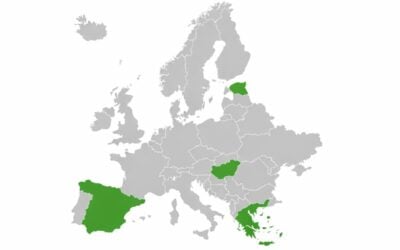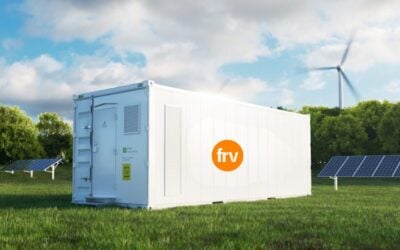
Recent policy announcements from the European Union could boost the energy storage market, an analyst says, but also reveal inherent weaknesses of the bloc’s free electricity market.
Energy was a prominent theme in Commissioner Ursula von der Leyen’s State of the Union Address on 14 September, and was preceded by a raft of proposed market interventions by the European Commission and followed by the European Parliament approving the 45% renewables target for 2030 set out earlier in the year by RePowerEU. Some countries have also increased their own targets.
“There is no doubt that the more intermittent renewables on the grid, the more flexible technologies such as energy storage will be required to integrate them,” Corentin Baschet, head of market analysis at energy storage consultancy Clean Horizon told Energy-Storage.news.
The Commission’s proposals for temporary market intervention to mitigate the energy crisis, which is set to amplify substantially over winter, are three-fold.
Try Premium for just $1
- Full premium access for the first month at only $1
- Converts to an annual rate after 30 days unless cancelled
- Cancel anytime during the trial period
Premium Benefits
- Expert industry analysis and interviews
- Digital access to PV Tech Power journal
- Exclusive event discounts
Or get the full Premium subscription right away
Or continue reading this article for free
The first is a mandatory target to reduce electricity consumption during peak hours by 5%. The second is a cap on the revenues of energy producers with low production costs, like renewables and nuclear, and for those excess profits to be re-invested to support the vulnerable (energy storage is not classed as one of these ‘inframarginal’ producers). The third is a solidarity contribution, or windfall tax, on the record profits of oil and gas companies.
Taking France as an example, Baschet said that the installation of 3,500 MW/7,000MWh of energy storage would be enough to achieve the 5% reduction there, if the assets charged and discharged twice a day (night and morning, and then afternoon and evening, respectively).
“However these measures are meant to be effective from December 2022 to end of March 2023 which means that there is not enough time for the deployment to take place,” he cautioned. “What will determine whether or not storage will benefit from this obligation is the set of measures that will be enforced in each country to deal with this obligation”.
We could see some residential and commercial & industrial (C&I) customers install and commission energy storage units within that timeframe to reduce their peak demand, but the effect of these on the overall system will be marginal, he added.
And the more telling aspect of the EU’s announcements is not necessarily the interventions themselves but what they reveal about the energy market today, Baschet said.
“I believe that this set of emergency measures also reveals a key weakness of the European free electricity market: private sector investors make decisions based on market prices which are highly volatile, it is thus very complex for them to make investment decisions.
“These type of incentives to reduce dependency on imported gas would have a lot more effect if they were planned ahead with clear mechanisms to remunerate infrastructure over the years (for instance encouraging C&I to reduce their peak consumption for the next five years rather than for the next four months).”
The limitations of formulating a business model based on market prices was something alluded to by German contacts discussing the country’s utility-scale market in a special report published in Vol.32 of PV Tech Power, Solar Media’s quarterly technical journal for the downstream solar industry.





